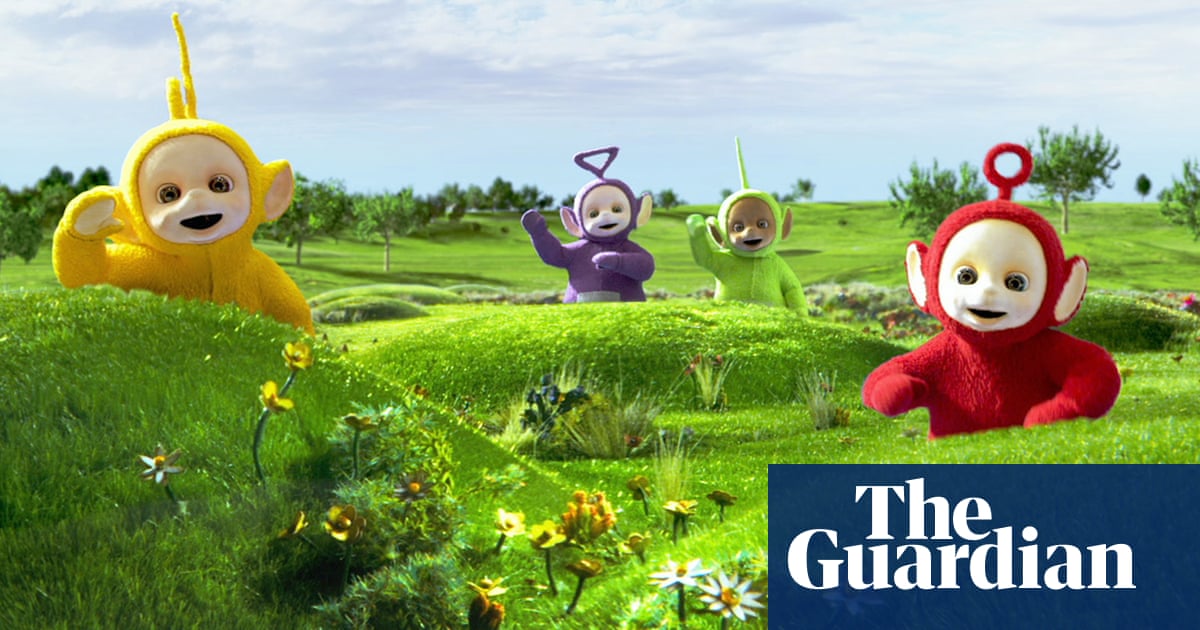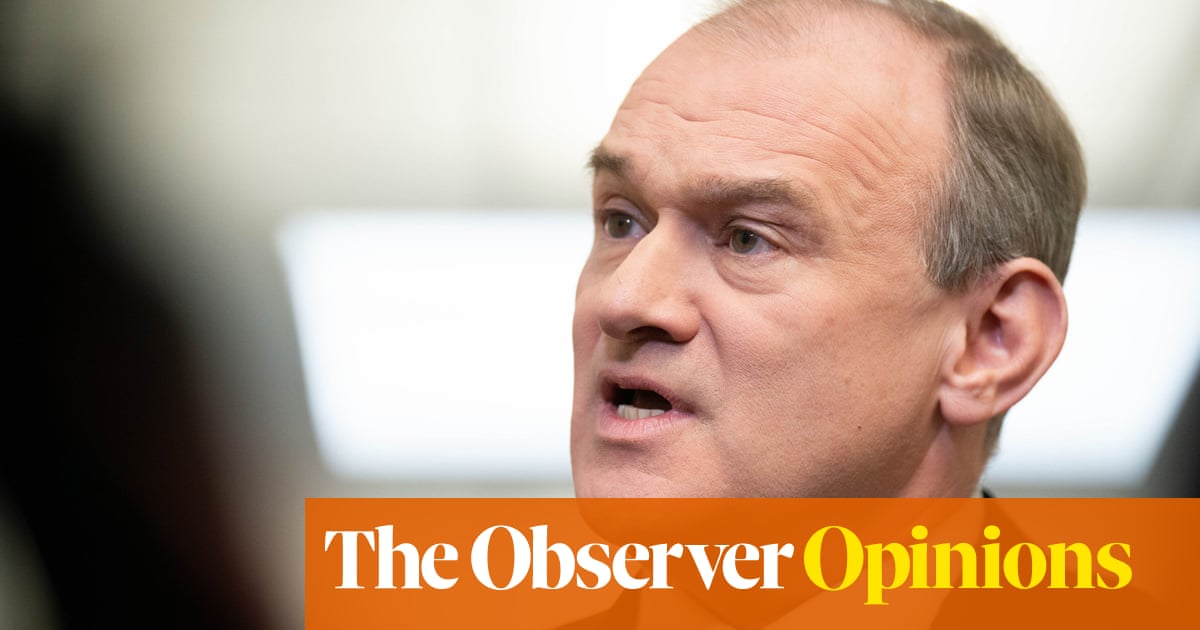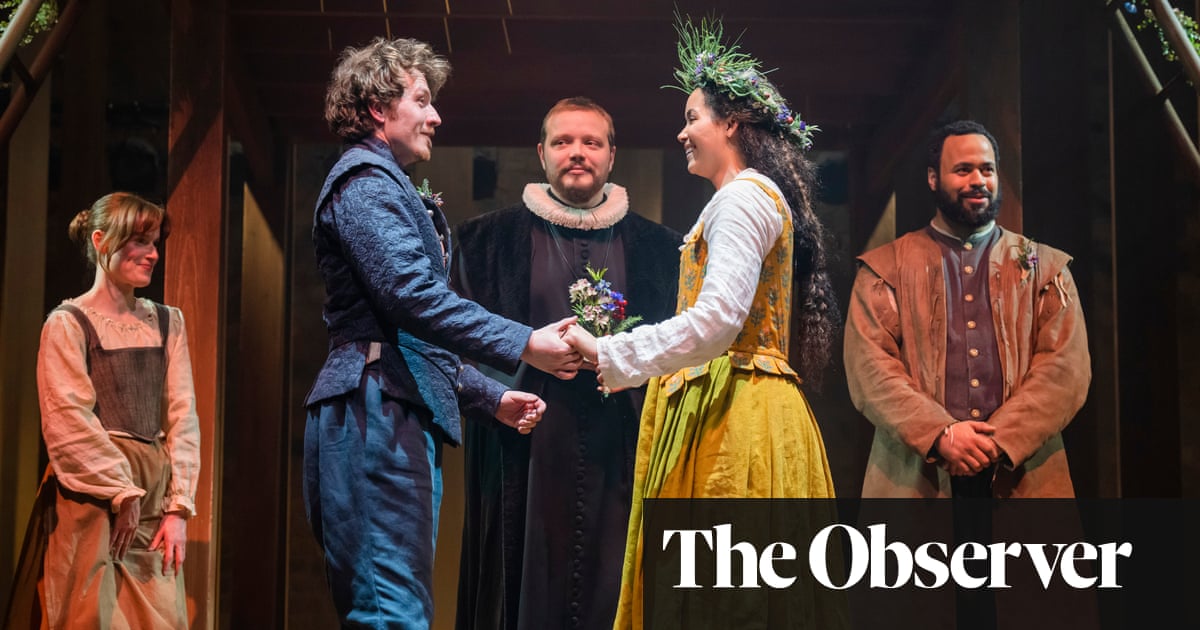
“It was a no-brainer for me. These icons needed their fashion moment,” says British fashion designer Christian Cowan. The icons in question? They’re up to 10ft tall, frolic on a bucolic planet, hang out with a vacuum cleaner and worship a neonate deity known as the Sun Baby.
Cowan is used to dressing the likes of Cardi B, Beyoncé, Lady Gaga and Lizzo rather than Tinky Winky, Dipsy, Laa-Laa and Po. The London College of Fashion graduate set up his eponymous label in 2016 and has built a cult following thanks to party girl looks and outrageous collaborations, including collections with Powerpuff Girls, Doritos and TV sitcom American Dad. It is fitting, then, that he was the brains behind March’s most charming fashion collaboration: a new Teletubbies capsule collection.
A photoshoot was set up to promote Cowan’s new line: in it, the Tubbies pose in their original suits alongside human models in bright-coloured clothing. These photos have been printed on the shirts, hoodies and jeans available to buy – autographs of the four stars are splashed across the prints.
The standout piece, though, is the Teletubbies Boot, a green high heel number zipping up to a bust of Dipsy and priced at £2,041. While Cowan’s Instagram post playfully reads “no caption necessary”, commenters – including Marc Jacobs, Paris Hilton and Michelle Visage – were more outspoken. “Need!” exclaimed Hilton. Time will tell whether they sell or remain as a social media memory; at the time of writing, the tees and jeans have sold out but there are still boots available.
While Cowan’s capsule may seem offbeat, he is not the first to be inspired by the aerial-headed quartet. The boots follow in the footsteps of a collaboration with Koi footwear last December, featuring five vegan, gender-neutral shoes with colour schemes to match all four characters, plus faithful vacuum cleaner Noo-Noo. Dipsy, too, has walked the runway for London designer Bobby Abley as part of his Tubbies-inspired collection in 2017.
Teletubbies has always been in fashion. Created by former teacher and children’s television show producer Anne Wood and writer Andrew Davenport, the show premiered on BBC Two in March 1997 and quickly became a kids’ classic, reaching 2 million viewers an episode in just five months. Teletubbies Say Eh-oh, the show’s theme tune, was a UK No 1 single for two weeks later that year.
The show would go on to be exported to pretty much every country under the infant sun, becoming one of the BBC’s most lucrative programmes ever and spawning a dizzying array of toys and spin-offs. The tabloid interest was so fervent that visitors were blindfolded to keep the show’s filming location secret. Later, after it was discovered to be filmed in a field in Wimpstone, Warwickshire, the owner filled the site with water to stop a constant stream of fans from trespassing.
Like the best kids’ shows, Teletubbies made absolutely no sense. So much so that it led to outrage from parents, aghast at its lack of comprehensible speech or educational value. Harvard psychologist Susan Linn saw it as another sign of the increasing commericalisation of children’s television, while the Daily Mirror said “the show was a bad influence on children”. In the end, though, the alien babies won, playing their part in 485 episodes on-and-off until 2018.
Now, Tubbymania is back. In November last year, Netflix relaunched the show. That followed on from the animated series Teletubbies, Let’s Go! just two months prior, and a 3D version looking at baby Tubbies, Tiddlytubbies. Last year, the official quartet even auditioned on Britain’s Got Talent to celebrate 25 years in the biz. Dancing to Beyoncé and One Direction, they handed out antennae headbands while confetti blasted in the background. The audience went bananas, and two minutes were frittered away in the best way possible.
The comeback is thanks to the creative minds at WildBrain, an animation studio and digital media company that also owns the licences to Inspector Gadget and In the Night Garden. It is set on pushing the Tubbies back to the front and centre of pop culture. “They’ve never really gone away,” says Melissa Goodrich, who oversees franchises at the company.
Noting that the “original fans are now adults”, Goodrich believes that the foursome are ready to re-enter the zeitgeist through “over-the-top fun moments in pop culture, fashion and important causes”.
One of those causes has been supporting gay pride, with the Tubbies teaming up with the labels Ellesse and GoGuy for a Pride collection. Back in 1999, commentators such as the firebrand US baptist pastor Jerry Falwell were outraged about Tinky Winky’s purple purse, arguing that it suggested that he was gay and a danger to children. Tinky Winky has since been celebrated as a gay icon. “I remember the outrage about Tinky Winky’s handbag as a child and the hysteria over a purple alien wearing a skirt,” says the Brighton-based drag artist Alfie Ordinary, who performs a routine inspired by the purple Tubbie. “I wanted to take this homophobic outrage and make Tinky Winky truly outrageous,” he says.
WildBrain is actively encouraging collaborations, licensing out the likeness to designers, artists and performers to get more Tubbies on the telly. It’s no wonder that so many are clamouring to do so: the visuals, for aesthetes into kitsch, are the best thing since sliced tubby toast.
If you think the Tubbies look out-of-this-world, you’re right: they’re based on astronauts. “I was fascinated by the moon landings,” Davenport told the Guardian in 2012. “It struck me as funny that, at this pinnacle of human achievement, the figures that emerged in bulky spacesuits from landing capsules are like toddlers, with oversized heads and foreshortened legs – and they respond to the excitement of their new world by bouncing about.”
It was an inspired decision: with their pipe-cleaner antennae, gormlessly cheery faces and tummy-mounted TVs, the show’s alien babies are instantly recognisable. You know you’ve got a hit on your hands when your characters already look like toys; sales of merchandise in the show’s first decade are estimated to have exceeded $1bn.
Of course, as with any kids’ TV show, the visuals aren’t all sunshine and rainbows. As anyone brave enough to rewatch a beloved childhood programme will know, there can be a creepy, uncanny side to the shows of our youth, and even the biggest Teletubbies fans will admit this exists in Tubbyland, too. Winnie the Pooh: Blood and Honey director Rhys Frake-Waterfield, who’s currently making a name for himself by giving horrific, adult twists to childhood icons (Bambi is next) wishes he could do the same with the Tubbies. “I have always thought the Teletubbies were incredibly strange. They are like half-naked aliens who hang around with children,” he says. “There is something very evil going on, which I’d love to explore.”
There’s no risk of a Teletubbies slasher crossing into the mainstream – unlike Winnie the Pooh, the show’s copyright will last into the next century. Its co-creator Wood, though, who is still producing new shows, has expressed concern about how reboots can stunt original creativity. “There are other people out there making good work, or at least they could, were they given the opportunity,” she said recently.
While Wood’s concern is understandable, the comfort-blanket quality of shows such as Teletubbies continues to appeal. “Millions of my generation grew up with them daily as we ate our sliced apple,” Cowan says. “My sister and I would pile on to the sofa to tune in to our vivid friends. We always have a soft spot for our childhood idols.” With many more collaborations in the future ready to enchant children and adults alike, we won’t be saying tubby bye-bye any time soon.












